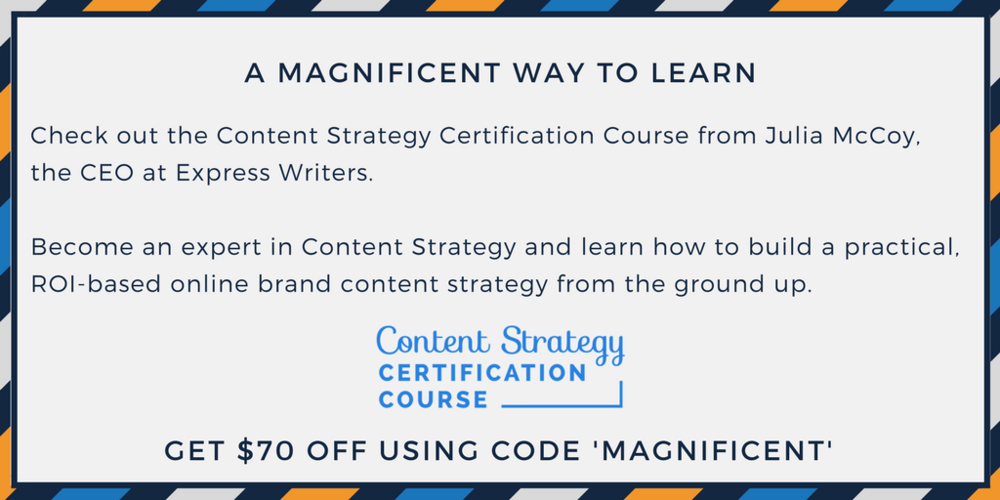Have you had your annual marketing meeting yet?
If you’re like most marketing managers or business owners, you recognize the importance of this meeting, but you might secretly dread it a little bit.
Let me let you in on something – your team probably feels the very same way.
Why do our annual meetings feel like drudgery? Shouldn’t they be something that motivates you and your team to go above and beyond this year to make your business grow?
Marketing phenom Andrew Davis took time out of his very busy schedule to talk with me about the subject of the annual marketing meeting. And let me tell you – Andrew didn’t disappoint. I was scribbling notes throughout our entire discussion and I will definitely be implementing some of his suggestions.
Would you like to turn your annual marketing meeting into an inspiring, educational, and motivating experience for your team? Then, read on.
How to Plan the Ultimate Annual Marketing Meeting
To host the ideal marketing meeting, it all starts with a plan. And that makes sense. Doesn’t every big event start this way?
Everything from business and marketing conventions to dinner parties have a specific theme.
Your annual meeting should too.
And let’s get real here, you don’t want your theme to be something lame like “Marketing 101” or “How we can do better.”
How would you feel if you attended a marketing convention and they told you those were the themes? You’d feel disappointed, directionless, and like this was going to be a huge waste of your time.
You don’t want your team to feel that way. You want to inspire them.
So, come up with an inspirational theme. And this starts with you. What do you want to accomplish over the next 12 months? How would you like to see your business grow?
If you’re having a hard time finding a theme, have no fear. Andrew recommends reading to help you find a theme.
In fact, he told me that he encourages business owner and marketing managers to find a book that their whole team should read.
For instance, let’s say your favorite book this year was Andrew’s latest book about partnerships. A month or two before the annual meeting, tell your team that they’re expected to read the book by the time of the annual meeting. This gives them plenty of time to digest all of the information.
Then, you’ll create a theme based on the book. In this case, your theme could be something like “How to utilize partnerships as a way to grow our business.”
Having this theme will make it easier for everyone to know what the ultimate goal is for the year: Growing the business with the aid of partnerships.
When you have a theme and a goal that’s this specific, it will be much easier to feel like everyone is on the same page. It will also be easier to keep the meeting on track.
Who Should Be Involved in Your Meeting?
Who should take part in your annual meeting?
For smaller companies, everyone should be involved. Andrew says that it’s best if every single person in your office takes part. Shut down your business for one day and just have everyone focus on the meeting. It will be a more productive use of everyone’s time.
What about larger companies?
First of all, you want everyone on your marketing team involved. It would be best, too, if senior management – the CEO or CFO – was involved as well.
Now, I know what you’re thinking. The CEO of a company is incredibly busy. Shouldn’t they just be briefed on what happened during the meeting?
Actually, this works against you in two ways.
First, the CEO should now what your big plan is. They should be let in on what your theme and goal are and provide you with input as needed.
Second, having the CEO in attendance shows everyone on your team that everyone is on board with the decisions being made at this meeting. Everyone is on board with the big goal for the year.
It can be difficult for a CEO to be in attendance for the whole meeting, so Andrew recommends having them show up at the beginning and end.
At the beginning of the meeting, they can talk about what went well the previous year. This will build up the team and start the meeting off on the right note.
Then, at the end of the meeting, they should be apprised of the strategies that you and your team plan to implement. The CEO can then offer their feedback.
Andrew made a good point about getting feedback from upper management. He said to let them know that you’d like them to present their feedback in this way:
- Tell us first what you like about the pitch
- If you have any criticism to offer, start it off with: “What I wish…” This is a soft way to offer feedback in a positive way. It makes the team feel like the idea they spent all day on isn’t dead, but rather, that it just needs to be expanded upon.
Make Your Meeting a Pleasant Experience and Your Team will Respond Accordingly
One of the goals you should have during your marketing meeting is to motivate your team. You want them to feel excited to go after their goals. You want them to not simply meet deadlines, but feel the need to crush it in the process.
When you have a theme and stick with it, your meeting becomes hugely motivating. What your team takes away from it will not be a huge To Do list, but rather, the goal of the company at large. And this will stick with them throughout the year. It will influence every decision they make at work.
If you want your team to perform at optimum levels, create a meeting that will get them into a headspace to do that. It all starts with you. When you’re focused and on top of your game – your team will be too.
Do you want to stay up to date on Andrew’s latest marketing tips? Make sure to check out his blog and follow him on Twitter. And don’t forget his new YouTube series, Loyalty Loop.
ABOUT ANDREW DAVIS
Andrew Davis is a bestselling author and internationally acclaimed keynote speaker. Before co-founding, building and selling a thriving digital marketing agency, Andrew Davis created programming for local television, produced for NBC’s Today Show, worked for The Muppets in New York and wrote for Charles Kuralt. He has marketed for tiny start-ups and Fortune 500 brands. In 2016, Davis founded Monumental Shift, the world’s first talent agency for marketing thought leaders.














